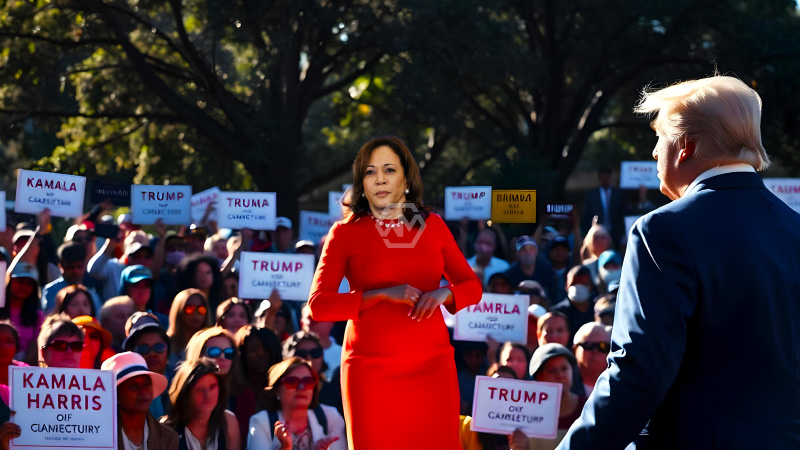- Harris leads in national voter outreach, but battleground states are evenly contested.
- Harris’ campaign offers more voter assistance than Trump‘s, especially in battleground areas.
- Rural voters are a critical focus, with Democrats emphasizing healthcare and connectivity.
With just weeks to go until Election Day, both Kamala Harris and Donald Trump’s campaigns are pushing hard to connect with voters.
Harris’ campaign has been particularly focused on voter assistance, providing services like checking voter registration and confirming voting plans.
Battleground Strategies: Harris and Trump Focus on Voter Engagement”
As the presidential race intensifies, both Kamala Harris and Donald Trump are prioritizing voter engagement in the final weeks leading up to Election Day. Recent polls reveal that more than 40% of Americans have been contacted by either campaign, with that figure rising to 62% in key battleground states. While Harris shows a slight advantage in national outreach, the competition remains fierce in these critical areas, where every interaction could influence the election outcome.
The effectiveness of each campaign’s outreach strategy is underscored by their ability to provide voter assistance. Nationally, 43% of those contacted by Harris’ campaign reported receiving help related to voting, such as checking registration status or confirming voting plans, compared to 35% for Trump. In battleground states, this disparity grows, indicating that Harris’ approach may be resonating more with potential voters who need support navigating the electoral process.
Additionally, the Democrats are focusing efforts on rural voters, a demographic that has historically leaned toward Trump. Tim Walz’s upcoming announcement of a comprehensive plan addressing healthcare and economic issues in rural communities is aimed at bridging the gap. This strategy is crucial for the Democrats, who are attempting to reclaim a voting bloc that overwhelmingly supported Trump in the last election.
The political landscape is further complicated by security concerns following an assassination attempt on Trump. The incident raises questions about campaign safety and the role of the Secret Service, adding an unexpected layer of tension to the election. As both candidates ramp up their campaigns, the implications of these issues could significantly impact voter sentiment and turnout.
In this fiercely contested election, the strategies employed by Harris and Trump will be pivotal in swaying undecided voters. With a focus on outreach and assistance, both campaigns are gearing up for a decisive final stretch.
“Now Donald Trump and JD Vance, they don’t think like us. They’re in it for themselves.” – Tim Walz emphasizes the disconnect between Democratic candidates



